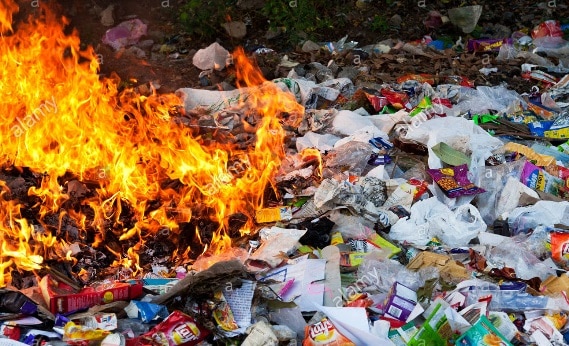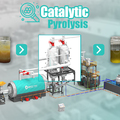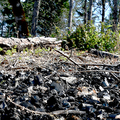Plastic waste management is a critical issue globally. Among the various methods of managing plastic waste, incineration is often employed due to its ability to reduce waste volume significantly. However, this method has several disadvantages that outweigh its perceived benefits. Understanding the implications of plastic incineration is crucial for developing more sustainable waste management practices. This article delves into the multifaceted disadvantages of plastic incineration, emphasizing the environmental, health, economic, and social impacts. It also explores alternative methods such as plastic recycling and pyrolysis, which offer more sustainable solutions.
Environmental Impact
Air Pollution
Plastic incineration releases a myriad of harmful pollutants into the atmosphere. During combustion, plastics emit toxic substances such as dioxins, furans, and heavy metals. These pollutants are persistent organic pollutants (POPs) that can travel long distances and accumulate in the environment, posing severe risks to ecosystems and human health. The incineration process also produces greenhouse gases like carbon dioxide (CO<sub>2</sub>) and methane (CH<sub>4</sub>), contributing to global warming and climate change.
Soil and Water Contamination
Incineration facilities generate ash residue, which often contains hazardous compounds. Improper disposal of this ash can lead to soil and water contamination. Heavy metals and other toxic substances can leach into the groundwater, affecting drinking water supplies and agricultural productivity. The contamination of soil and water resources can have long-term ecological consequences, disrupting ecosystems and harming wildlife.
Health Hazards
Respiratory Issues
The emission of fine particulate matter (PM2.5 and PM10) from incineration plants poses significant health risks. These particulates can penetrate deep into the lungs and bloodstream, causing respiratory issues such as asthma, bronchitis, and other chronic obstructive pulmonary diseases (COPD). Vulnerable populations, including children, the elderly, and individuals with pre-existing health conditions, are particularly at risk.
Carcinogenic Risks
Dioxins and furans released during plastic incineration are known carcinogens. Long-term exposure to these substances can increase the risk of cancers, including lung, liver, and skin cancers. The accumulation of these toxic compounds in the food chain further exacerbates the health risks, as they can be ingested through contaminated food and water.

Economic Drawbacks
High Operational Costs
The construction and maintenance of incineration plants are capital-intensive. These facilities require advanced technology and continuous monitoring to ensure compliance with environmental regulations. The costs associated with pollution control measures, such as scrubbers and filters, add to the overall operational expenses. Consequently, incineration can be economically unfeasible, particularly for developing countries with limited financial resources.
Inefficiency in Resource Utilization
Incineration results in the loss of valuable materials that could otherwise be recycled. Plastics contain significant amounts of energy and raw materials that can be recovered and reused through plastic recycling processes. By incinerating plastics, we not only waste these resources but also miss out on the economic benefits associated with recycling, such as job creation and reduced dependence on virgin materials.
Social Implications
Community Opposition
Incineration plants often face strong opposition from local communities. Residents living near incineration facilities are concerned about the health risks and environmental pollution associated with these plants. The negative perception and opposition can lead to social unrest and conflicts, complicating waste management efforts and policy implementation.
Inequitable Impact
The adverse effects of plastic incineration are often disproportionately borne by marginalized and low-income communities. These communities are more likely to live near incineration facilities and are thus more exposed to the harmful pollutants emitted. This inequitable impact highlights the need for more just and inclusive waste management practices that protect the health and well-being of all populations.
Alternatives to Plastic Incineration
Plastic Recycling
Plastic recycling is a more sustainable alternative to incineration. Recycling processes involve collecting, sorting, and reprocessing plastic waste into new products. This method conserves resources, reduces energy consumption, and minimizes environmental pollution. Advanced recycling technologies, such as chemical recycling, can handle a broader range of plastic types and improve the overall efficiency of plastic recycling.
Pyrolysis
Pyrolysis is another promising alternative to plastic incineration. This thermal decomposition process occurs in the absence of oxygen and breaks down plastics into smaller molecules, producing valuable byproducts such as pyrolysis oil, syngas, and char. The pyrolysis machine offers several advantages over incineration, including lower emissions, energy recovery, and the potential for converting waste plastics into useful chemicals and fuels.
Conclusion
Plastic incineration, despite its ability to reduce waste volume, presents numerous disadvantages that undermine its viability as a sustainable waste management solution. The environmental pollution, health risks, economic inefficiencies, and social inequities associated with incineration call for a shift towards more sustainable practices. Alternatives like plastic recycling and pyrolysis offer promising solutions that align with environmental and public health goals. By prioritizing these alternatives, we can move towards a more sustainable and equitable approach to managing plastic waste.





